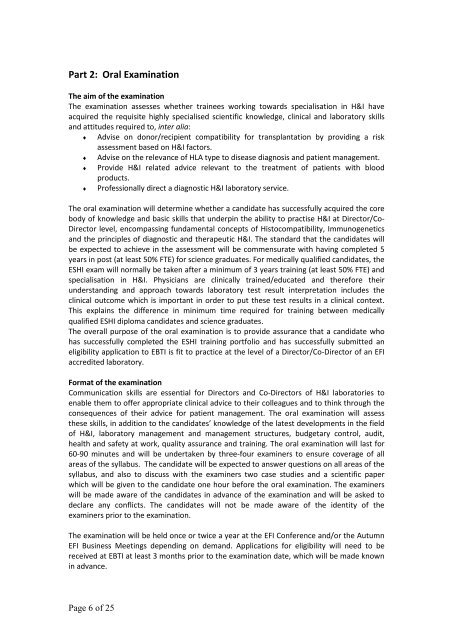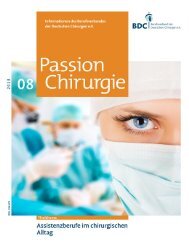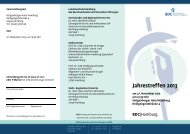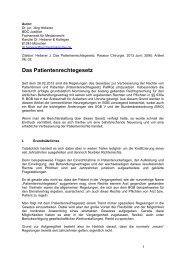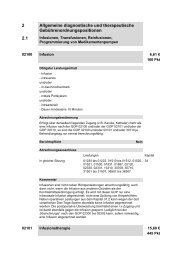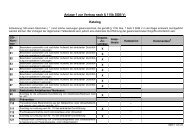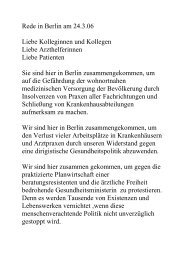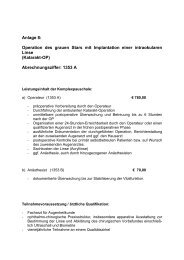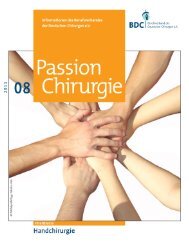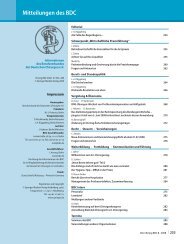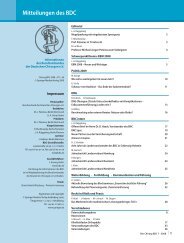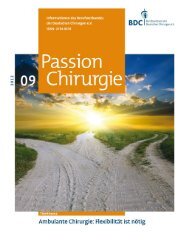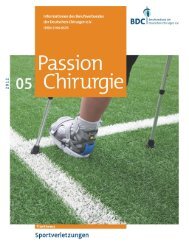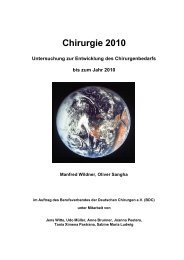(eshi) diploma - BDC
(eshi) diploma - BDC
(eshi) diploma - BDC
Create successful ePaper yourself
Turn your PDF publications into a flip-book with our unique Google optimized e-Paper software.
Part 2: Oral Examination<br />
The aim of the examination<br />
The examination assesses whether trainees working towards specialisation in H&I have<br />
acquired the requisite highly specialised scientific knowledge, clinical and laboratory skills<br />
and attitudes required to, inter alia:<br />
♦ Advise on donor/recipient compatibility for transplantation by providing a risk<br />
assessment based on H&I factors.<br />
♦ Advise on the relevance of HLA type to disease diagnosis and patient management.<br />
♦ Provide H&I related advice relevant to the treatment of patients with blood<br />
products.<br />
♦ Professionally direct a diagnostic H&I laboratory service.<br />
The oral examination will determine whether a candidate has successfully acquired the core<br />
body of knowledge and basic skills that underpin the ability to practise H&I at Director/Co-<br />
Director level, encompassing fundamental concepts of Histocompatibility, Immunogenetics<br />
and the principles of diagnostic and therapeutic H&I. The standard that the candidates will<br />
be expected to achieve in the assessment will be commensurate with having completed 5<br />
years in post (at least 50% FTE) for science graduates. For medically qualified candidates, the<br />
ESHI exam will normally be taken after a minimum of 3 years training (at least 50% FTE) and<br />
specialisation in H&I. Physicians are clinically trained/educated and therefore their<br />
understanding and approach towards laboratory test result interpretation includes the<br />
clinical outcome which is important in order to put these test results in a clinical context.<br />
This explains the difference in minimum time required for training between medically<br />
qualified ESHI <strong>diploma</strong> candidates and science graduates.<br />
The overall purpose of the oral examination is to provide assurance that a candidate who<br />
has successfully completed the ESHI training portfolio and has successfully submitted an<br />
eligibility application to EBTI is fit to practice at the level of a Director/Co-Director of an EFI<br />
accredited laboratory.<br />
Format of the examination<br />
Communication skills are essential for Directors and Co-Directors of H&I laboratories to<br />
enable them to offer appropriate clinical advice to their colleagues and to think through the<br />
consequences of their advice for patient management. The oral examination will assess<br />
these skills, in addition to the candidates’ knowledge of the latest developments in the field<br />
of H&I, laboratory management and management structures, budgetary control, audit,<br />
health and safety at work, quality assurance and training. The oral examination will last for<br />
60-90 minutes and will be undertaken by three-four examiners to ensure coverage of all<br />
areas of the syllabus. The candidate will be expected to answer questions on all areas of the<br />
syllabus, and also to discuss with the examiners two case studies and a scientific paper<br />
which will be given to the candidate one hour before the oral examination. The examiners<br />
will be made aware of the candidates in advance of the examination and will be asked to<br />
declare any conflicts. The candidates will not be made aware of the identity of the<br />
examiners prior to the examination.<br />
The examination will be held once or twice a year at the EFI Conference and/or the Autumn<br />
EFI Business Meetings depending on demand. Applications for eligibility will need to be<br />
received at EBTI at least 3 months prior to the examination date, which will be made known<br />
in advance.<br />
Page 6 of 25


